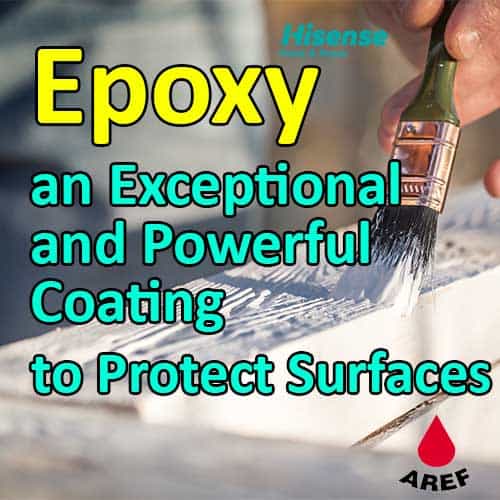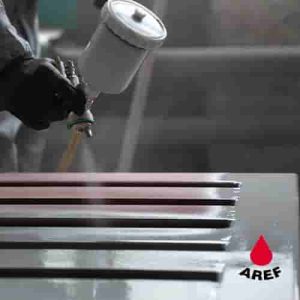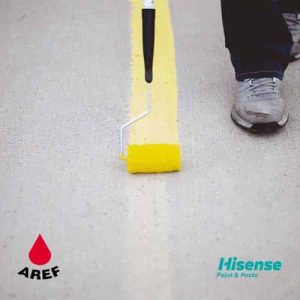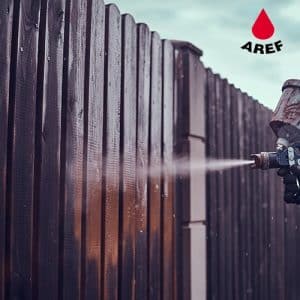what is epoxy?
Epoxy is a type of polymer that is created through a chemical reaction between an epoxide resin and a hardener.
Once the two components are mixed together, they create a strong and durable substance that can be used in a wide range of applications.
It is known for its exceptional bonding properties, chemical and water resistance, and high strength.
It is commonly used as an adhesive, coating, or filler in everything from industrial settings to home improvement projects.
Epoxy is also used in the manufacturing of composites, electronics, and other products.
Contact us for more information on various steel structures paints and get a free consultation.
How did it make?
Epoxies are made by mixing two components: epoxy resin and a hardener.
Epoxy resin is typically a liquid polymer that is made by reacting epichlorohydrin with bisphenol A or other similar compounds.
The hardener is usually a liquid or solid chemical that contains amine or amide functional groups. When they are mixed together, they undergo a chemical reaction known as curing.
The curing process causes the molecules to cross-link and form a strong, durable material.
The different types of epoxies available in the market can vary based on the specific mixtures and formulations used by different manufacturers, resulting in various curing times, strengths, and viscosities.
What are the uses of epoxy in the industry?
Epoxy has a wide range of uses in industry, as it is a tough and versatile material. Some of the most common uses of epoxy in the industry include:
- Adhesives: They are used to bond a wide variety of materials together, including metals, plastics, and composites.
- Protective coatings: Epoxy coatings provide an excellent level of protection against wear and tear, corrosion, and chemicals. They are used to protect surfaces such as concrete floors, steel structures, and pipelines.
- Electrical insulation: These are used as insulation for electrical components and wiring.
- Tooling and molding: These are used as a material for creating molds and models in various industries, such as aerospace and automotive manufacturing.
- Composites: They are used in the creation of composite materials, used in many products such as sporting goods, aircraft, and marine products.
- Surfboards: Epoxies are used to make contemporary surfboards.
- Jewelry: These are also used as adhesives and coatings in jewelry manufacturing. Overall, there are many different applications for epoxy in the industrial sector, as it is a high-performance material that provides superior strength, durability, and chemical resistance.
What are the uses of epoxy for home use?
It has many uses for home use. Some of the most common uses include:
- Adhesives: It is often used as a strong adhesive for bonding together different materials, such as plastics, metals, and wood.
- Flooring: It can be used to create a durable and attractive flooring surface in areas such as garages, basements, and workspaces.
- Repairs: It can be used to repair a wide range of household items like appliances, pipes, furniture, and toys.
- Coatings: It coatings can be used to protect and seal surfaces like concrete, countertops, and garage floors.
- Art and Crafts: It can be used to create unique and durable artwork or craft projects like coasters, jewelry, and resin art.
What are its types?
There are different types of epoxy resins, each with unique properties to suit specific applications. Some of the most common types of epoxy include:
- Standard epoxy: General-purpose epoxy is often used in bonding, coatings, and construction.
- Clear epoxy: Used for casting and encapsulating as it dries clear.
- High-temperature epoxy: Resistant to high temperatures, typically used in the automotive and aerospace industries.
- Marine-grade epoxy: Formulated for use in harsh marine environments due to its water and impact resistance.
- Structural epoxy: Has a high bonding strength and is often used in construction and repairs.
- Electrical epoxy: Used for electrical insulation and encapsulation of electronic components.
- Adhesive epoxy: Designed for bonding and fastening, often used in the automotive and construction industries.
- UV-resistant epoxy: Resistant to ultraviolet light and often used for outdoor applications.
What are the methods of using epoxy?
There are several methods of using epoxy, depending on the application and the type of epoxy being used. Here are some common methods:
- Two-part mixing: The most common method of using epoxy is to mix two parts of the epoxy resin and hardener together just before using it. This method is often used for bonding, filling, and coating applications.
- Injection: Epoxy can be injected into cracks, holes, and voids using a syringe or injection gun. This method is commonly used for repairing concrete structures.
- Brushing or rolling: Epoxy can be applied using a brush or roller for coating applications. This method is commonly used for garage floors, decks, and boats.
- Casting and molding: Epoxy can be used to make molds or castings for various projects, such as jewelry, decorative items, and sculptures.
- Spray application: Epoxy can be sprayed onto surfaces using a spray gun for large surface areas or hard-to-reach areas. This method is commonly used for industrial applications.
For the steel structures, you need the best and most quality and at the same time the most affordable paint.
Aref Chemical will completely satisfy your needs by producing paint for steel structures with the Hisense brand.
These colors are produced from the best raw materials and with the latest methods in the world.
We were able to produce the best coating paints for steel structures at reasonable prices with numerous tests and using many years of experience in the field of producing all kinds of construction and industrial paints.
Hisense products are exported to the whole world as soon as possible.
Please leave us your comments and suggestions. Also, our colleagues will be at your service for a free consultation and to provide more information about Aref Chemical products.







10 Responses
Excellent write-up. I definitely appreciate this site. Continue the good work!
Thanks for your complete explains
so useful
https://qomtamirat.com/
https://qomtamirat.com/
it was perfect thanks
[…] used to dilute epoxy paints. The solvency power of epoxy thinner depends on its ability to dilute epoxy […]
thanks
https://tavatranslation.com/%d8%b1%d9%88%d8%b4-%d8%af%d8%b1%db%8c%d8%a7%d9%81%d8%aa-%d9%88%db%8c%d8%b2%d8%a7%db%8c-%d8%aa%d8%ad%d8%b5%db%8c%d9%84%db%8c-%d8%a2%d9%84%d9%85%d8%a7%d9%86/
so great
https://behdama.com/%da%af%db%8c%d8%ac-%d9%81%d8%b4%d8%a7%d8%b1/
i really use it much
https://daroosf.com/%D8%AD%D8%B3%D8%A7%D8%B3%DB%8C%D8%AA-%D9%81%D8%B5%D9%84%DB%8C/
oh my God fabulous
https://daroosf.com/%D8%AE%D9%84%D8%B7-%D8%BA%D9%84%DB%8C%D8%B8/